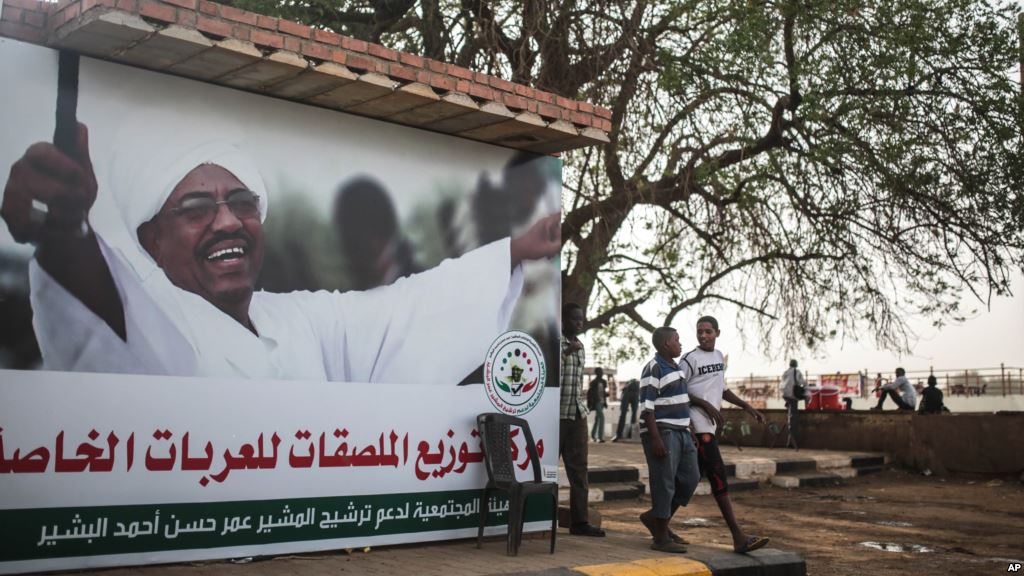Apr. 13, 2015 (GIN) – Sudanese President Omar al-Bashir is predicted to roll up an easy victory in national polls this week, adding another five year term to his already 26 years in office.
Voting began Monday and will continue for three days. More than 13 million people are registered to vote at some 11,000 polling stations around the country.
The country’s main opposition groups, however, have refused to participate, leaving some 15 little-known candidates to challenge Bashir. Among them is Fatima Abd-al-Mahmud, the only female candidate, running on the Sudanese Socialist Democratic Union ticket. A pediatrician, the 71-year-old entered politics four decades ago and has served in several ministerial posts.
Leaders of the opposition say that no credible elections can be held until peace is restored in all of the country’s regions and until all political prisoners are released and press freedom is restored.
“We are not going to participate in this election because it is not fair and free,” declared Hassan Osman Rizig, deputy president of the opposition Reform Now Movement party. “It is not recognized by the internal opposition or by the international community.”
“This is not an election and I personally, and our movement, shall not recognize this election,” echoed Minni Minnawi, chair of a Sudan Liberation Army faction that has been fighting government forces in Darfur for years, in a Guardian (UK) newspaper interview via satellite phone.
Fighting has been relentless in Darfur, Blue Nile and the South Kordofan region of Sudan, near the South Sudanese border, since conflict erupted in the fall of 2011 between the armed forces and the Sudan People’s Liberation Army-North.
In January, Sudanese air force planes bombing rebels in the Nuba Mountains area struck a hospital run by Doctors Without Borders (MSF), where some 150 patients were being treated. Two bombs landed inside the hospital compound, the doctors’ group said, injuring one MSF staffer and one patient.
Still, the world community has shown signs of easing up on Bashir, once a roundly-criticized international pariah. The International Criminal Court, citing lack of support from the UN Security Council, ended its investigation of abuses in Darfur although the president still faces charges of war crimes, crimes against humanity and three counts of genocide – accusations he denies.
Other actions favoring Bashir was the recent decision by Washington to allow communications equipment including smartphones and laptops into the country.
Both Bashir and opposition members have made improved relations with the U.S. a high priority in their campaign rallies.
The elections will be monitored by the African Union, the Intergovernmental Authority on Development (IGAD), the Organisation of the Islamic Conference (OIC), and the Arab League. European monitors have decided to stay home, citing doubts the exercise could produce credible results.
Quota systems in place are expected to ensure that women occupy at least 25 percent of seats in the national assembly and that all the country’s regions are fairly represented. w/pix of Pres. Al Bashir campaign banner







